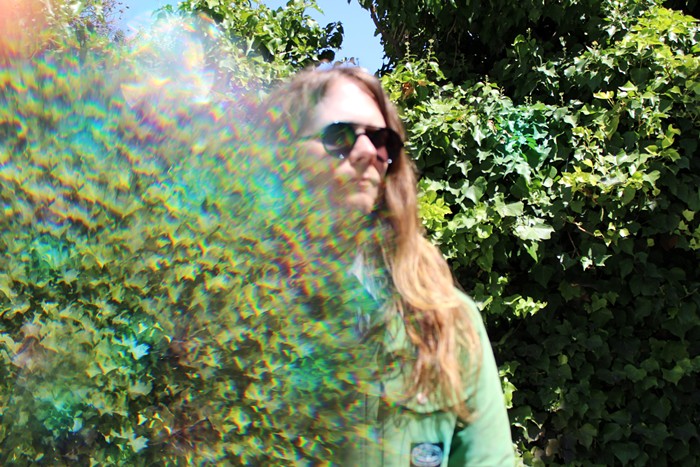THE NAME of a famous book notwithstanding, there really aren't many trees growing in Brooklyn. Instead, the place is forested with bands of all stripes, nearly all of which bear some citified evidence in their music of living in the tangle of America's biggest metropolis. Woods, however, don't sound like they're from the city at all, but maybe somewhere upstate—Woodstock, perhaps—with pastoral folk songs cloaked under a pother of tape effects courtesy of G. Lucas Crane.
Crane's stash of cassettes and murky loops keeps Woods firmly in weirdo zone, despite the rather approachable collection of folk-rock tunes from songwriters Jarvis Taveniere and Jeremy Earl, who actually do come from upstate New York, and who met Crane as students at the State University of New York in Purchase. Taveniere and Earl became friends because of music, says Taveniere: "Just, like, out of willingness to go on tours. That's how we kind of found each other. Like, 'Oh, Jeremy's willing to do nothing normal with his life but live in a van. I'll hang out with him.'
"But Lucas is more of an interesting case," continues Taveniere. "He was a lit major and we were friends just because he was such a strange, beautiful man. It wasn't until after school where I ran into him, after not hanging out with him for a year, and he was just doing this [field recording] with tapes. I'd run into him in the street and he'd say, 'Oh, I have this friend that plays cello, I'm gonna go tape her playing cello,' or 'I know this friend who has, like, a bell.'"
The other curveball is Earl's voice, a falsetto that doesn't evoke Neil Young as much as Tony Scheuren's parody of Young ("Southern California Brings Me Down") from the National Lampoon Radio Hour. It's a nasal, mentholated strain of a voice that gradually asserts its own beauty over the course of a Woods album or one of their excellent, jam-heavy live sets. At Echo Lake, the latest Woods full-length, dispenses with the band's more outré noise collages for a tightly knit batch of songs that, without Crane and his tapes spiking the punch, could be a guileless, plainspoken singer/songwriter record. As it is, At Echo Lake is a woolly and slowly addictive listen, highlighted by swooning campfire sing-along melodies like "Blood Dries Darker" and "Time Fading Lines."
The initial impression is that Woods are on the gentler edge of the Woodsist spectrum—the label that Earl runs, and home to some of the best garage and punk releases of the last couple years, including albums by Portland bands Eat Skull and Meth Teeth. But like those bands, Woods share a simple love of records and music, and that simplicity may actually be all there is to the band, as Taveniere suggests.
"I don't know, I feel like Woods is kind of this idea we have," he says. "Maybe not even musically—maybe music can be a little bit unspecific—but we just feel when something's right, and when something's not what Woods would do. We have to come to each record and say, 'I'm a music fan, I like Woods; what would I be really stoked for the next Woods record to sound like?' and that's just kinda just how we go about things. As far as being popular and having as many people hearing the music... I've heard popular radio. I'm not into it."



















